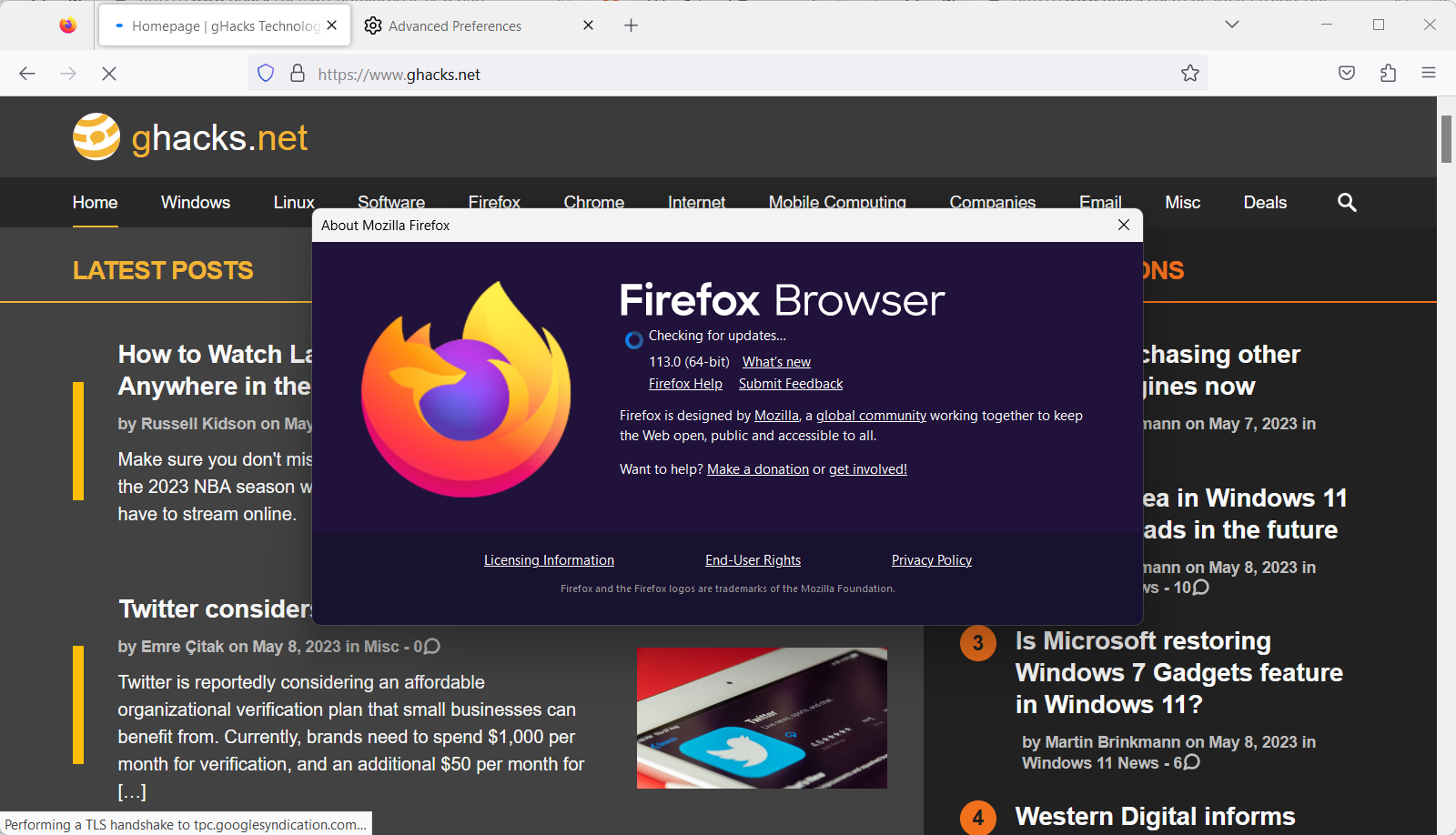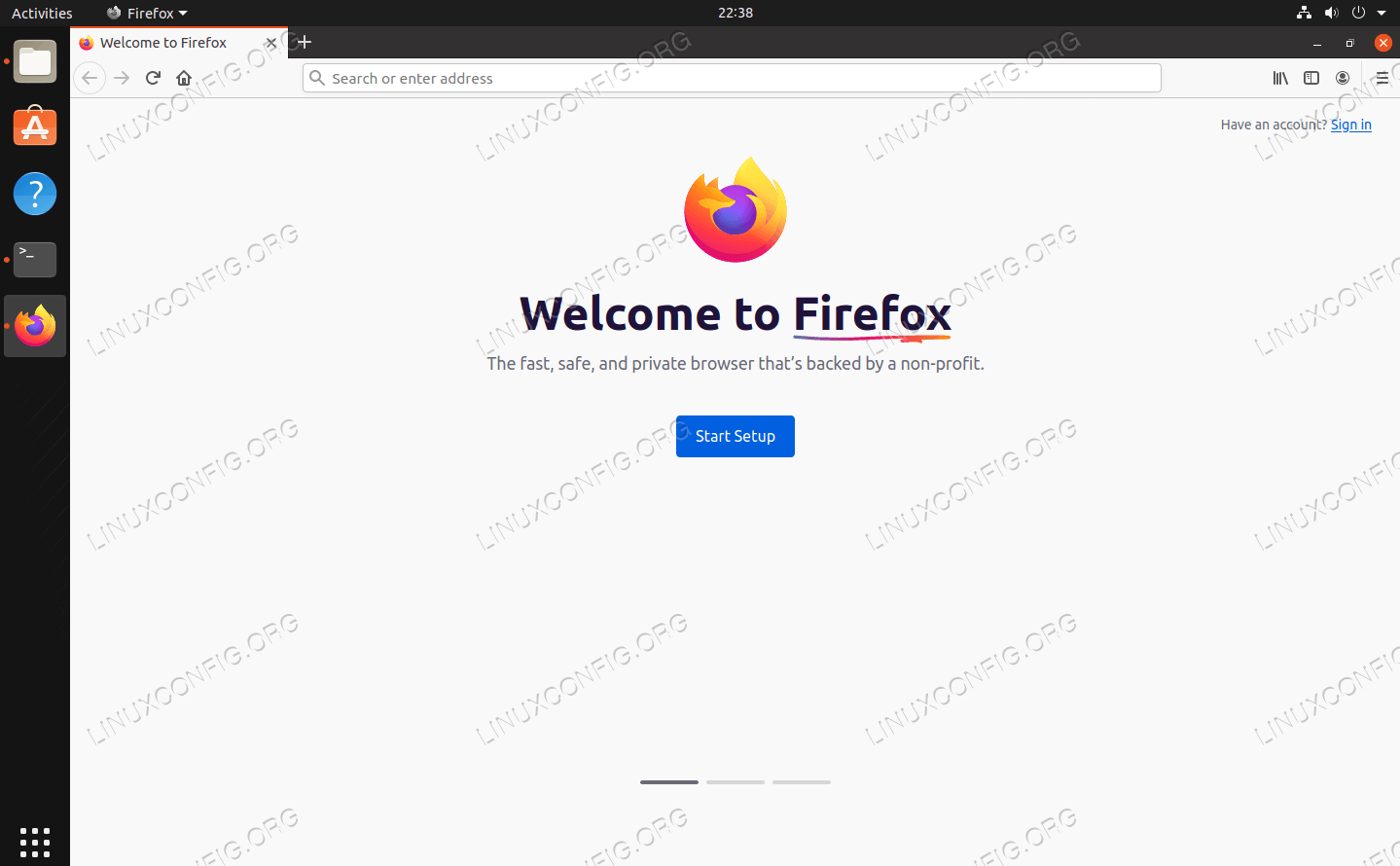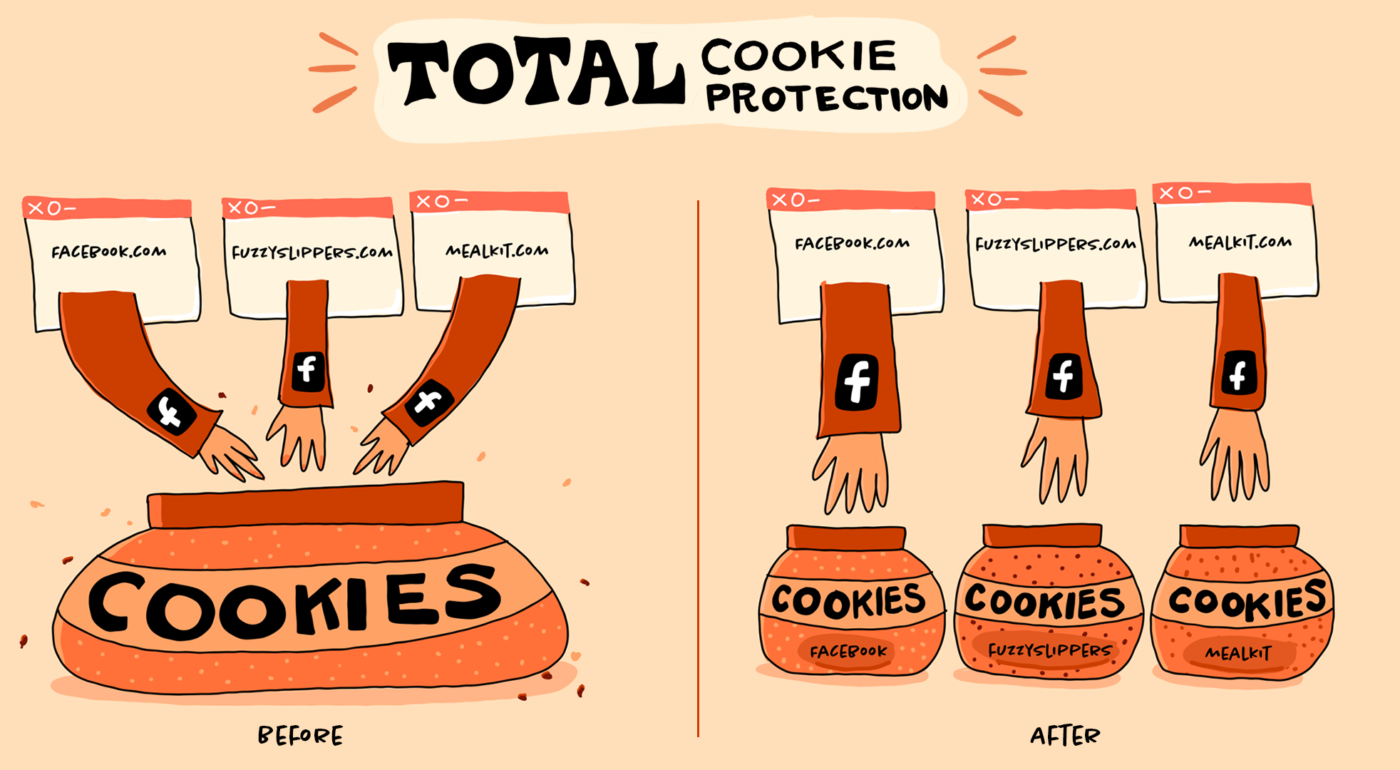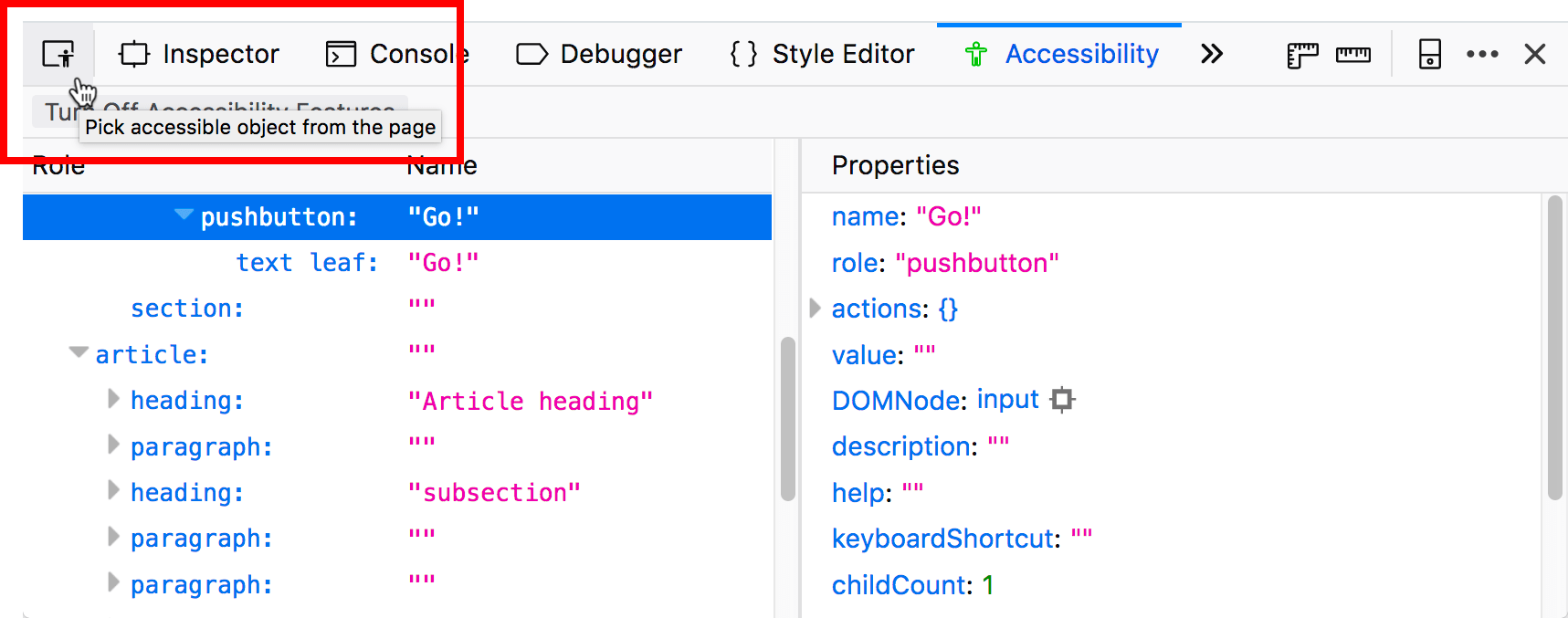Firefox accessibility improvements have made significant strides in ensuring a more inclusive browsing experience for users with assistive technologies. After the launch of Firefox Quantum, many users noticed a decline in screen reader performance, prompting a renewed focus on enhancing accessibility features. With the recent Firefox 113 upgrade, users on all platforms—Windows, Mac, Linux, and Android—now benefit from faster and more reliable interactions with screen readers. This update showcases Mozilla’s commitment to refining their browser’s capabilities and creating an environment where everyone can navigate the web more effectively. By addressing the challenges posed by prior architectural changes, the latest Mozilla Firefox release marks a pivotal moment in accessibility, paving the way for a smoother and more efficient user experience.
Recent enhancements to Firefox’s user accessibility represent a crucial step forward in web inclusivity. The ongoing evolution of this widely-used browser, particularly after the integration of features aimed at improving assistive technology interactions, has drawn attention from the community. As this latest iteration, dubbed Firefox 113, becomes available across various operating systems, it is evident that Mozilla is prioritizing the needs of all users. The advancements in speed and functionality reflect a broader trend in modern browsers to accommodate diverse needs, particularly for individuals relying on tools like screen readers. With these developments, the focus on enhancing accessibility can be seen as an essential component of improving overall internet usability.
Overview of Firefox Quantum and Its Accessibility Challenges
When Mozilla introduced Firefox Quantum five years ago, it marked a significant turning point for the browser, boasting enhanced speeds and improved user experiences. Unfortunately, this upgrade did not extend its benefits to users relying on screen readers and other assistive technologies. Instead, many found that performance, particularly for screen reader users, declined due to the architectural transformations that Quantum implemented. This challenge raised concerns within the accessibility community, as not all users perceived the expected speed and efficiency boost.
Despite dedicated efforts from Firefox’s accessibility team to mitigate these issues throughout the late 2010s, the fundamental architecture proved to be a bottleneck. By 2020, the team recognized that merely patching the existing structure was not enough to achieve the advancements required for optimal support. This strategic pivot resulted in a broader vision encapsulated in the plan for ‘Cache the World’, aiming to completely rejuvenate the accessibility functionalities of Firefox, thus paving the way for future improvements.
Key Improvements in Firefox Accessibility Features
With the rollout of Firefox 113, the accessibility enhancements introduced significantly transform how assistive technologies interact with the browser. The innovative ‘Cache the World’ effort restructured the accessibility code, allowing screen readers to swiftly access vital content, streamlining the user experience across all major operating systems, including Windows, Mac, Linux, and Android. This update means users can enjoy a seamless interaction with the content, irrespective of their platform.
One of the hallmark improvements is the optimized performance when dealing with resource-heavy tasks, such as navigating large tables or extensive web pages. Reports indicate that Firefox can now operate up to 20 times faster under these demanding conditions, significantly benefiting users who rely on screen readers. The speed enhancements are not limited to complex tasks; even routine activities, like email management in Gmail or chat interactions on Slack, demonstrate performance boosts of two to three times. These advancements firmly place Firefox back in contention as a reliable tool for all users, including those who depend on assistive technologies.
Moreover, the implementation of a caching mechanism allows screen readers to quickly retrieve the necessary UI information from the browser’s parent process, optimizing the resource usage in a multi-process environment. With these enhancements integrated into the Firefox framework, users can expect a more responsive and reliable browsing experience, effectively bridging the accessibility gap that had widened with earlier upgrades.
Transition to Modern Browsing Architectures
The evolution of web browsers has substantially increased in complexity since the inception of the original accessibility engine. A pioneering change in modern browser architecture is the shift towards multi-process structures aimed at bolstering security. While enhancing security, this architectural direction posed unique challenges for assistive technologies, particularly concerning communication between the screen readers and the web content.
To address these challenges, the Firefox accessibility team drew inspiration from other leading browsers like Chrome, adapting best practices to refine Firefox’s performance. The new approach facilitates a more efficient resource allocation in the browser, allowing it to maintain a competitive edge without compromising on accessibility. The realignment of processes not only enhances overall speed but also ensures that assistive tools can operate more effectively, heralding a new era of accessibility in Firefox.
Feedback and Community Engagement on Accessibility
As the Firefox team continues to roll out these vital accessibility features, community feedback is more important than ever. Mozilla is actively encouraging users to share their experiences regarding the Firefox 113 upgrade and any remaining accessibility concerns. The input from real-time users, especially those engaged with screen readers, plays a crucial role in refining and improving the browser’s functionality.
Participation in community platforms like Mozilla Connect offers users an avenue to voice their suggestions or issues. Furthermore, reporting bugs through Bugzilla enables the accessibility team to address specific problems users encounter, making it an integral part of enhancing the overall Firefox experience. The collaboration between Mozilla and its user base is a testament to the commitment towards creating an inclusive browsing environment that meets the diverse needs of all individuals.
The Future of Firefox Accessibility Enhancements
Looking ahead, the Firefox team is dedicated to further enhancing accessibility features within the browser. The success of the accessibility improvements introduced in Firefox 113 has set a solid foundation for ongoing development. As modern browsing continues to evolve with new web standards and technologies, the team remains committed to adapting and innovating in ways that ensure usability for all.
Regular updates and enhancements will be based on user feedback and the evolving landscape of web accessibility. By staying engaged with the community and addressing the challenges faced by users of assistive technologies, Firefox aims to enhance functionality continually. The ultimate goal is to create a browsing experience that is not only fast and efficient but also inclusive, reaffirming Mozilla’s commitment to accessibility in every release.
Understanding the Technical Aspects of Firefox 113 Upgrade
The technical underpinnings of the Firefox 113 upgrade reveal a comprehensive rethinking of how the browser processes accessibility requests. The ambitious project, ‘Cache the World’, showcases a shift in Firefox’s accessibility architecture, fundamentally aimed at improving performance for screen readers. With a modernized code base, Firefox can now deliver content to users more effectively, demonstrating how dedicated engineering can have a substantial positive impact on the user experience.
The technical strategies deployed to enhance screen reader performance were guided by an understanding of user needs and the challenge posed by multi-process architecture. By consolidating information retrieval processes, the browser now allows for a more responsive interaction, leading to a faster output for screen readers. As users continue to engage with these technologies, the tech community can expect further innovations that build on this foundation.
Comparing Firefox and Competitors in Accessibility
When evaluating Mozilla Firefox in light of its competitors, it’s essential to note the strides the Firefox team has made regarding accessibility. While other browsers like Chrome and Edge have made significant leaps in this area, the latest Firefox upgrade with release 113 illustrates Mozilla’s unwavering commitment to ensuring that users with disabilities have a smooth browsing experience. With tailored updates focused on performance improvements for screen readers, Firefox stands out as a robust choice for accessibility.
Although the industry remains competitive, the successful navigation of usability and performance challenges has allowed Firefox to carve out a niche for itself. Key performance metrics, such as the drastic speed increases highlighted in Firefox 113, showcase not just an improvement in technical specifications but significant enhancements in practical usability. This makes Firefox a compelling choice among users seeking optimal accessibility features.
Contributions of the Firefox Accessibility Team
Key to the success of the Firefox 113 upgrade is the dedicated work of the accessibility team led by Jamie Teh. Their commitment to enhancing accessibility functions is not only a response to user feedback but a reflection of the organization’s belief in inclusive technology. The diverse skill sets within the team, including specialists in usability and technical performance, collaborate effectively to drive significant improvements that benefit all users, especially those with special accessibility needs.
The team’s ongoing efforts in research and development highlight the importance of inclusivity in software engineering practices. Each release is designed to tackle the challenges faced by users relying on assistive technologies, leading to a more equitable web browsing experience. As the accessibility team continues to innovate, their work sheds light on an essential aspect of the digital landscape—ensuring that all users can navigate the web efficiently and effectively.
Resources for Users Interested in Firefox Accessibility
For users keen on understanding or contributing to Firefox’s accessibility features, numerous resources are available. Mozilla’s extensive documentation provides valuable insights into the latest accessibility enhancements, technical details, and user guides. These resources empower users by providing information about optimal ways to interact with Firefox through screen readers and other assistive technologies.
Moreover, engaging forums and discussion platforms like Mozilla Connect offer invaluable opportunities for users to share experiences, report issues, and propose enhancements regarding accessibility. Mozilla’s commitment to fostering a vibrant community ensures that every user can participate in shaping the future of Firefox’s accessibility features.
Frequently Asked Questions
What accessibility improvements have been introduced in Firefox 113 upgrade?
The Firefox 113 upgrade includes significant accessibility improvements specifically aimed at enhancing screen reader performance. These enhancements allow assistive technologies to access content more swiftly and efficiently, increasing the speed of navigation and interaction for users relying on screen readers.
How does Firefox Quantum affect accessibility features for screen readers?
When Mozilla first released Firefox Quantum, it impacted screen reader performance negatively for some users. However, ongoing improvements have been implemented over the years, culminating in the Firefox 113 upgrade, which significantly boosts accessibility for those using screen readers.
What changes were made to Firefox’s accessibility architecture with the Cache the World project?
The Cache the World project redefined Firefox’s accessibility architecture to streamline how screen readers access content. This overhaul allows screen readers to quickly retrieve information from a cached source, improving the performance of assistive technologies in Firefox.
Can Firefox accessibility improvements benefit users on all operating systems?
Yes, the latest accessibility improvements in Firefox, particularly the ones introduced with Firefox 113, are available across all platforms including Windows, Mac, Linux, and Android, ensuring that all users benefit from enhanced screen reader performance.
How does Firefox’s new accessibility system compare to other browsers?
Firefox’s new accessibility system, inspired by approaches used in Chrome, provides a cache of tab and browser UI content within the parent process. This innovation allows screen readers to access critical information more quickly than before, positioning Firefox competitively in the browser market.
What specific performance gains can users expect from the Firefox 113 accessibility upgrades?
Users can expect substantial performance gains, including improved speeds of up to 20 times faster for challenging scenarios like large tables, and 2 to 3 times better performance for everyday tasks, significantly enhancing the overall user experience.
What feedback mechanisms are in place for users regarding Firefox accessibility changes?
Mozilla welcomes user feedback on the new accessibility features of Firefox. Users can share their thoughts in the comments section of the relevant blog post or report any issues via Bugzilla, contributing to ongoing development and improvement.
Is there a community platform for discussing Firefox accessibility improvements?
Yes, Mozilla encourages community involvement in discussing ideas for enhancing Firefox’s accessibility through Mozilla Connect, where users can share feedback and suggestions with the team.
| Aspect | Details |
|---|---|
| Background | Five years ago, Mozilla released Firefox Quantum, which severely impacted screen reader performance. |
| Performance | Accessibility engineers improved performance in late 2010s, but faced challenges due to outdated architecture. |
| Rewrite Plan | A new plan, ‘Cache the World’, was initiated to overhaul accessibility code for better integration with assistive technologies. |
| Release of Improvements | Firefox 113 release includes significant improvements for all devices (Windows, Mac, Linux, Android). |
| Technical Changes | Adoption of a multi-process architecture that enhances accessibility by caching content efficiently for screen readers. |
| Performance Gains | Speed improvements of up to 20 times for complex pages and 2-3 times faster for everyday tasks like Gmail and Slack. |
| Feedback and Community | Users are encouraged to provide feedback and report issues through Bugzilla and Mozilla Connect. |
Summary
Firefox accessibility improvements have dramatically enhanced the performance and experience of users relying on assistive technologies. With the introduction of the ‘Cache the World’ initiative, screen reader efficiency has increased significantly, allowing for up to 20 times faster operation on complex web pages and substantial performance enhancements for daily tasks. This holistic upgrade not only addresses past deficiencies but also highlights Mozilla’s commitment to inclusivity and user experience across all platforms, ensuring that accessibility remains a priority in future developments.



